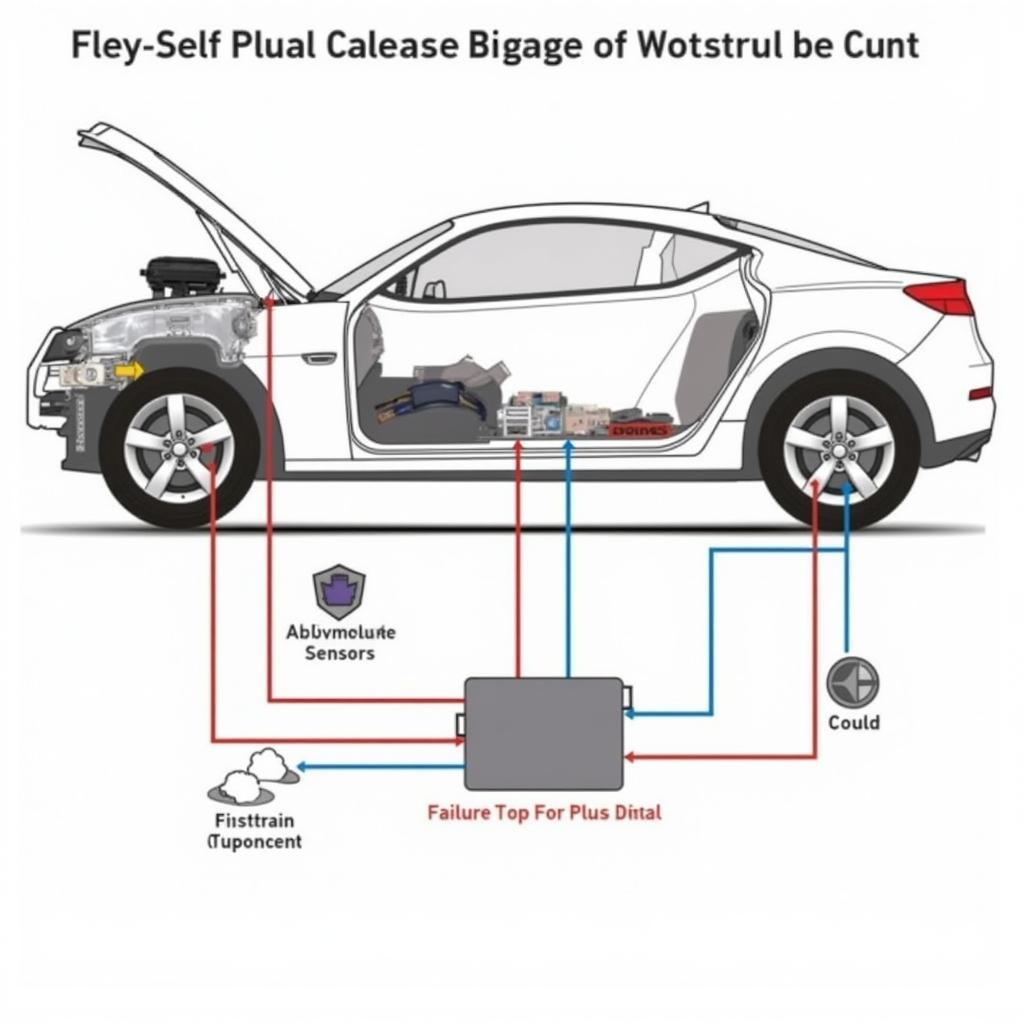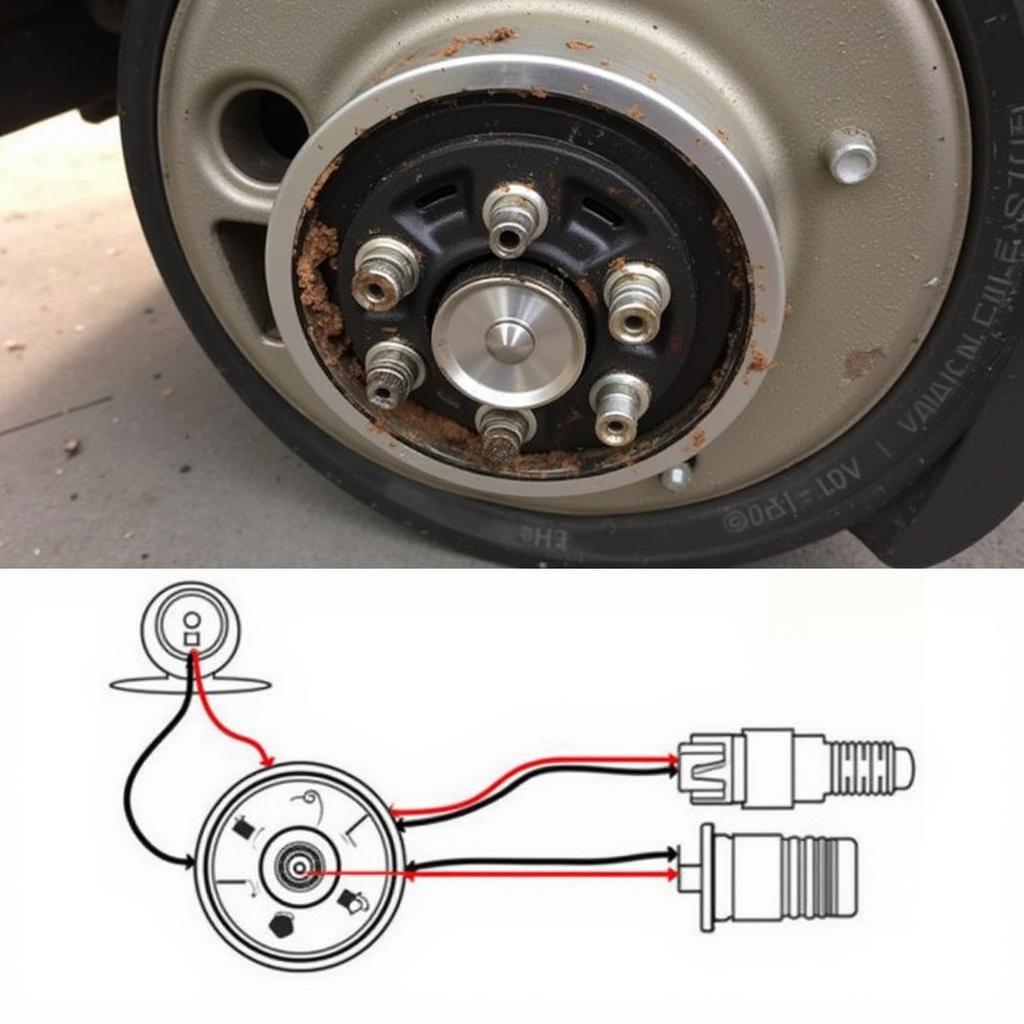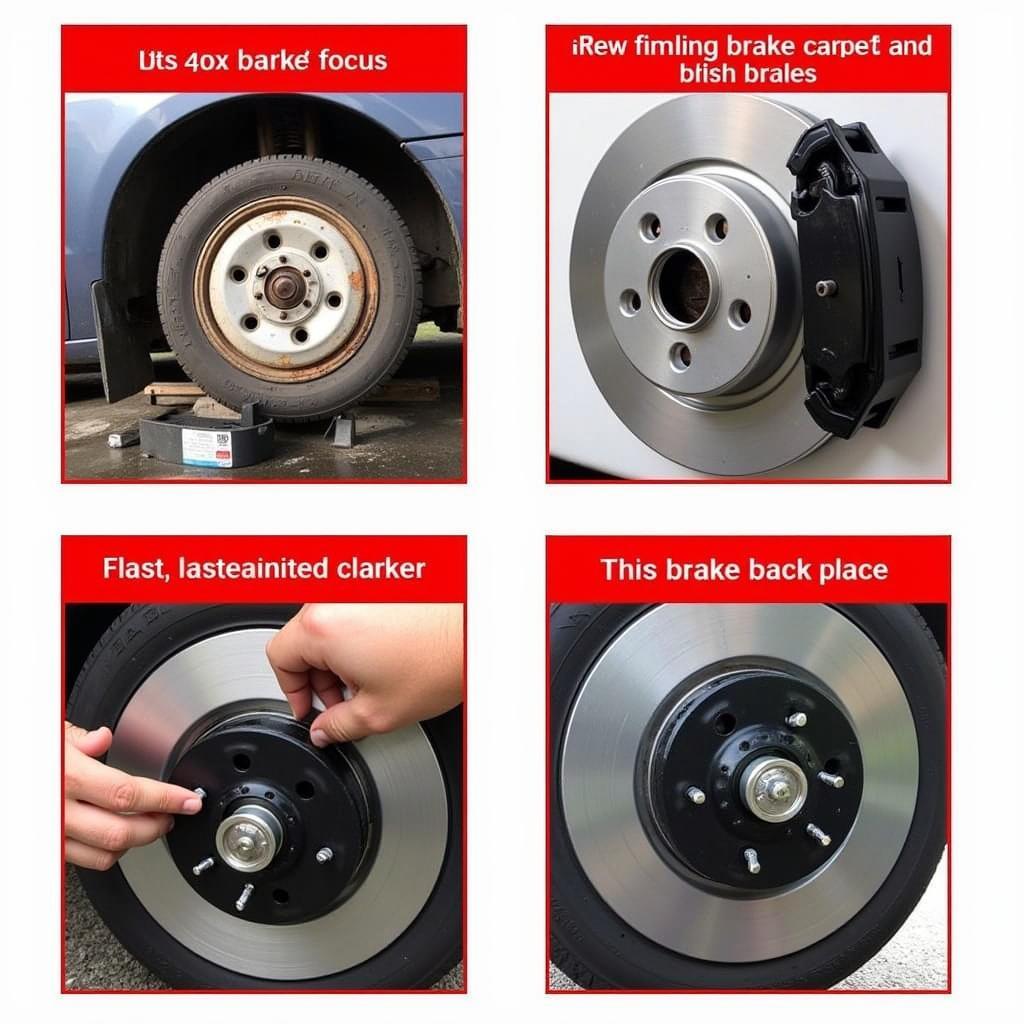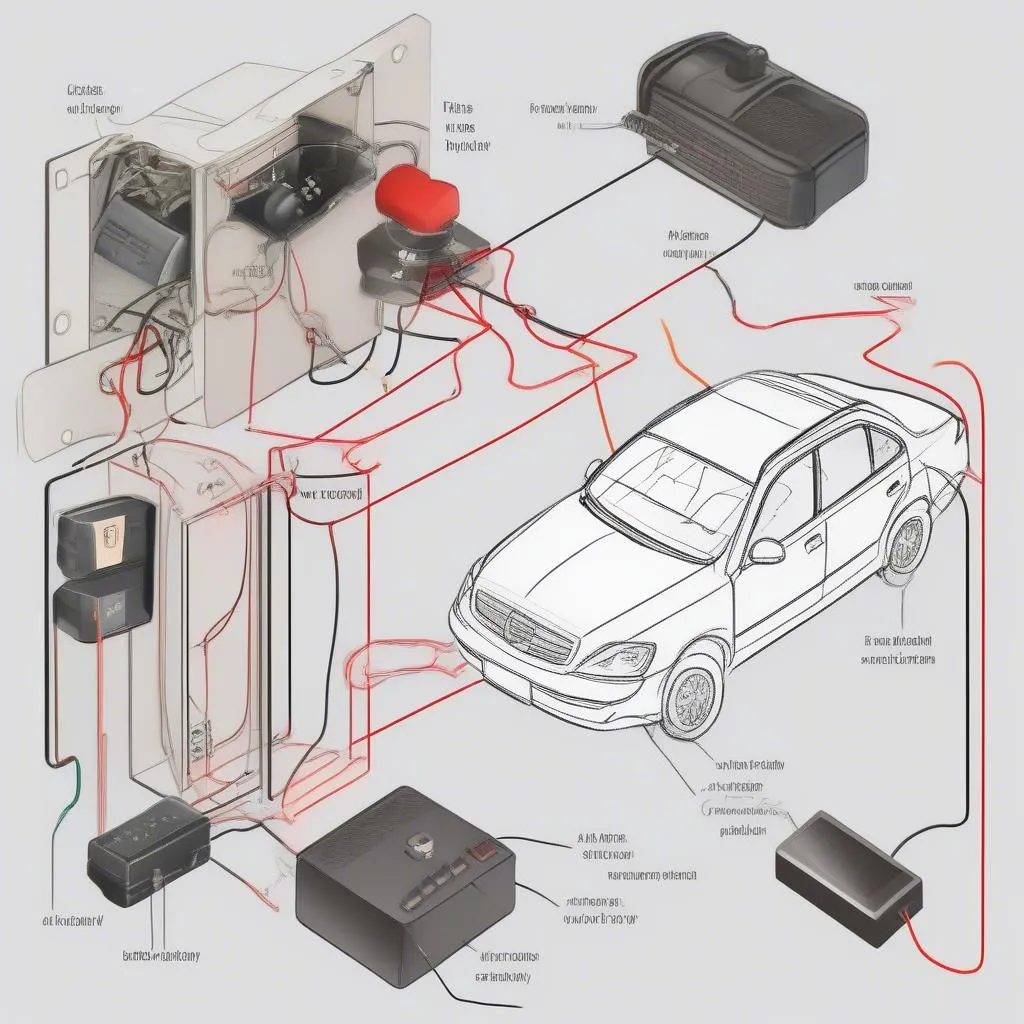Can brakes cause the powertrain warning light to come on? It’s a question many car owners find themselves asking. While seemingly unrelated, brake issues can sometimes trigger the powertrain warning light. This article explores the intricate connection between your vehicle’s braking system and its powertrain, explaining why this seemingly odd pairing can occur and offering diagnostic and troubleshooting advice. warner brake controls
How Brakes and Powertrain Can Be Connected
The powertrain encompasses the components responsible for moving your vehicle, including the engine, transmission, and drivetrain. While the braking system’s primary function is to slow or stop the car, there are points of intersection, particularly with modern vehicles equipped with advanced electronic stability control (ESC) and anti-lock braking systems (ABS). These systems rely on sensors that communicate with the powertrain control module (PCM), the computer that governs engine and transmission operation. A malfunction within the braking system, especially one affecting these sensors, can sometimes send erroneous signals to the PCM, triggering the powertrain warning light.
 Brake System and Powertrain Connection
Brake System and Powertrain Connection
Common Brake Issues That Trigger Powertrain Warnings
Several brake-related problems can lead to a powertrain warning light. A faulty ABS wheel speed sensor, for example, can disrupt the ESC system, causing the PCM to illuminate the warning light. Similarly, a malfunctioning brake pressure sensor can send incorrect signals, leading to the same result. Low brake fluid, while not directly related to the powertrain, can also trigger the warning light in some vehicles, as the system may interpret it as a potential hydraulic failure affecting braking performance and stability.
Can a bad brake caliper cause the powertrain warning light to come on?
While less common, a severely seized brake caliper can overheat and potentially damage ABS components or wiring, indirectly triggering the powertrain warning light.
 Faulty ABS Sensor Triggering Powertrain Light
Faulty ABS Sensor Triggering Powertrain Light
Diagnosing and Troubleshooting the Problem
If your powertrain warning light comes on alongside braking issues, it’s crucial to diagnose the problem accurately. Start by checking your brake fluid level. If it’s low, top it off and see if the light goes out. If the problem persists, you’ll need more advanced diagnostics. A professional technician can use a diagnostic scanner to read the trouble codes stored in the PCM, pinpointing the source of the issue. These codes can provide valuable insights into whether the problem originates from the braking system or another part of the powertrain.
How do I know if my brake sensor is bad?
Symptoms like a pulsating brake pedal, inconsistent braking performance, or the ABS light illuminating alongside the powertrain warning light can indicate a faulty brake sensor.
“Ignoring a powertrain warning light, especially when accompanied by braking problems, can be dangerous,” cautions automotive diagnostics expert, Dr. Alan Carter, PhD, Mechanical Engineering. “Prompt diagnosis and repair are crucial to ensuring your vehicle’s safety and performance.”
Addressing Brake-Related Powertrain Issues
Depending on the specific problem, solutions can range from simple fixes like topping off brake fluid or replacing a worn brake pad to more complex repairs like replacing an ABS sensor or module. Addressing the root cause of the brake issue often resolves the powertrain warning light as well. Remember, ignoring these warning signs can lead to further damage and potentially compromise your safety.
What should I do if the powertrain light is still on after fixing the brakes?
If the light persists after addressing the brake issue, there might be another underlying problem unrelated to the brakes. Further diagnostics by a qualified technician are necessary.
Conclusion
Can brakes cause the powertrain warning light to come on? Absolutely. While the two systems seem distinct, they are interconnected in modern vehicles, and brake problems can trigger the powertrain warning light. Understanding this connection and addressing brake issues promptly can prevent further complications and ensure a safe and reliable driving experience. warner brake controls Don’t ignore warning signs; take action to keep your car in optimal condition.
“Regular brake maintenance and timely repairs are essential for preventing issues that can trigger the powertrain warning light and other complications,” adds Dr. Carter. “A proactive approach can save you time, money, and potentially even prevent accidents.”
FAQ
- Can low brake fluid cause the powertrain warning light to come on? Yes, in some vehicles, low brake fluid can trigger this warning light.
- What should I do if my brake and powertrain warning lights are both on? Have your vehicle inspected by a qualified technician immediately.
- Is it safe to drive with the powertrain warning light on? It depends on the underlying issue. It’s best to have it checked as soon as possible.
- How much does it cost to fix a brake-related powertrain issue? Costs vary depending on the specific repair needed.
- Can I fix a brake-related powertrain issue myself? Some basic repairs, like topping off brake fluid, can be done DIY. More complex issues require professional expertise.
- How often should I check my brakes? It’s recommended to have your brakes inspected at least once a year or as recommended in your vehicle’s owner’s manual.
- Can a faulty brake light switch trigger the powertrain warning light? While less common, it’s possible in some vehicles, as the brake light switch interacts with other systems.


